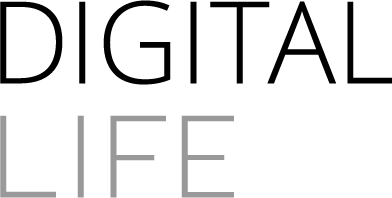The Smart Health and Vitality Lab: where AI goes hand in hand with health
21-06-2021

The Smart Health and Vitality Lab of the Center of Expertise Applied Artificial Intelligence (CoE-AAI) of the Amsterdam University of Applied Sciences is under construction and a definitive scope has not yet been determined. In any case, the lab will focus on the adoption and handling of Artificial Intelligence by health professionals. New technology and good care are not a logical combination for everyone. Nevertheless, steps will have to be taken to realize the innovations for the near future, partly with the help of technology – together with parties from healthcare, education, research and innovative companies.
Ambition
Somaya Ben Allouch, lecturer at the Digital Life research group: 'The Smart Health and Vitality Lab is being set up. Our ambition is to connect education with practice. There are plenty of challenges!'
Jesse Aarden, lecturer-researcher at the Faculty of Health at the AUAS: 'Yes, there is an enormous aging population coming up. That's a big challenge. One in seven people currently works in healthcare. If we want to cope with the aging population, one in four should work in healthcare.
That is impossible. We can never train so many students to become healthcare professionals. It is therefore important to make optimal use of technology in order to serve the patient as well as possible. Healthcare must be organized in a more efficient way. And that's where AI comes in.'
Catching up
Somaya: 'In recent years, more and more attention has been paid to AI in healthcare, because it can offer many opportunities to meet the challenges that lie ahead. Within healthcare you have to deal with specific target groups. A lot of data is available for some groups, such as diabetes patients. How can you serve this group? How can you use AI responsibly?
Which methods can we use to solve certain health issues? Those are questions that concern us.'
Jesse: 'We have already made great strides in the field of AI. Digitization has a huge impact. We have a lot of data that can be linked. Ultimately, it is about collecting this data in a structured and responsible manner. And that issues or cases can be solved.'
Inspiration
Somaya: 'Our lab is very interesting for students. We have a minor in Applied AI and are developing a master. There is also a minor in Health Technology. Incidentally, there are many health students who have not yet come into contact with AI, but for whom it could be interesting. It would be nice if we could include these in AI development. That the lab can play a facilitating role. The big challenge is that the professional field and education find each other. There is so much potential. Giving inspiration, that's what it's all about, call it movement. That could be a great role for the lab.'
Link
Jesse: 'Teachers are role models for students, they also inspire. Furthermore, students often have very good ideas. It is important that they get a platform. Actually, I'm talking about co-creation here.'
Somaya: 'It's a great way for teachers to keep on learning. They are presented with interesting cases. That provides a lot of motivation to keep working on the latest state of the art. In this way, practice acquires a relationship with education. They find and inspire each other.
We also investigate cases together with students. We also do this in the minor AI, or students participate in their graduation phase or during an internship. There is now room for a maximum of thirty students, which we would like to expand. We also want to include health students, who at first sight have less affinity with AI, in this.'
This interview was published in the magazine of the Center of Expertise Applied AI, part of the Knowledge Center FDMCI of the Amsterdam University of Applied Sciences.

